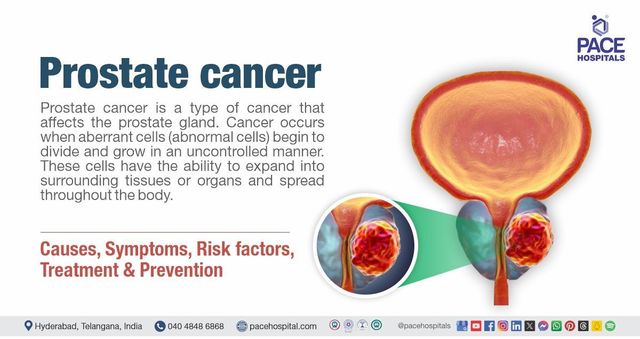
For men whose prostate cancer aggressively reemerges following surgery or radiation, there’s finally some encouraging news: a combination of two drugs has demonstrated the ability to lower the risk of mortality by over 40%, as revealed in outcomes from a significant global clinical trial.
This treatment combines enzalutamide, which inhibits testosterone’s impact on cancer cells, with conventional hormone therapy. After monitoring over 1,000 participants for eight years, researchers discovered that this pairing led to fewer deaths among men dealing with aggressive, relapsing prostate cancer. The results were published on October 19 in The New England Journal of Medicine and shared concurrently at the European Society for Medical Oncology Congress in Berlin.
“Following initial treatment, some patients experience a resurgence of their prostate cancer in a more aggressive manner and are at risk for rapid disease progression,” stated Stephen Freedland, director of the Center for Integrated Research in Cancer and Lifestyle at Cedars-Sinai Cancer, who co-directed the study. “Hormone therapy, which has been our treatment for 30 years, hasn’t enhanced survival rates, nor has anything else. Thus, these findings represent a significant breakthrough.”
## When PSA Levels Indicate Issues
The trial, designated EMBARK, included patients from 244 locations across 17 nations. All participants were diagnosed with what medical professionals refer to as high-risk biochemically recurrent prostate cancer. That term captures the reality that after their first treatment involving surgery or radiation, these men observed a swift rise in their PSA levels.
PSA, or prostate-specific antigen, is a protein generated by the prostate. It serves as one of the more dependable early detection systems for prostate cancer. A spike in PSA levels post-treatment often suggests that the cancer is reemerging and spreading, typically to bones or the spine. These individuals face a dire prognosis without effective treatment.
The study’s design was uncomplicated. Participants were randomly assigned to three groups: one receiving standard hormone therapy alone, another receiving enzalutamide by itself, and the last receiving both medications simultaneously. Researchers then monitored the outcomes, tracking survival rates.
## Eight Years Later, A Distinct Champion
The outcomes took time to emerge but were ultimately rewarding. After eight years, 78.9% of patients in the combination group remained alive, in contrast to 69.5% in the hormone-therapy-only cohort. This resulted in a 40.3% decreased risk of death for those utilizing both drugs.
“This clinical trial, one among many presented to Cedars-Sinai Cancer’s patients, exemplifies the translational efforts of our physician-scientists. The results will enhance treatment and improve patient outcomes on a broader scale.”
Interestingly, enzalutamide taken alone did not yield nearly as favorable results. Men on only the newer medication had an 8-year survival rate of 73.1%, which was not substantially different from that of hormone therapy alone. The true efficacy appears to lie in the combination.
Freedland indicated that based on prior results from this trial, enzalutamide has already received FDA approval and is included in National Comprehensive Cancer Network treatment recommendations. These latest survival results should further establish the drug combination as the standard treatment for this patient demographic.
The implications go beyond mere numbers. For many years, physicians have faced limited choices for men whose prostate cancer returns aggressively. Conventional hormone therapy lowers testosterone levels, which can decelerate prostate cancer growth, as testosterone promotes tumor progression. Yet, it hasn’t been able to prolong lives. This study indicates that incorporating enzalutamide alters that equation.
“These significant findings highlight a treatment that extends survival for men with aggressive prostate cancer,” remarked Hyung Kim, chair of the Department of Urology at Cedars-Sinai. “The recent analysis supports previous studies demonstrating that enzalutamide considerably enhances survival in other contexts of prostate cancer, and will transform our approach to patient care.”
The safety profile remained consistent with earlier studies, and side effects were manageable, a crucial factor when treatment may be required for extended periods.
Prostate cancer remains one of the most prevalent cancers among men, and although many cases are detected early and successfully treated, recurrence is a continually looming danger. For the subset of patients experiencing a fierce return of their cancer, this combination therapy marks the first notable survival enhancement in three decades. That represents more than just a statistical triumph; it translates into additional years with loved ones, more opportunities to travel, and extra birthdays to commemorate.
The study was funded by Pfizer and Astellas Pharma, the developers of enzalutamide. Freedland disclosed consulting ties with both firms, among other pharmaceutical companies.
[New England Journal of Medicine: 10.1056/NEJMoa2510310](https://doi.org/10.1056/NEJMoa2510310)
**There’s no paywall here**
*If our reporting has informed or inspired you, please consider making a donation. Every contribution, no matter the size, empowers us to continue delivering accurate, engaging, and*